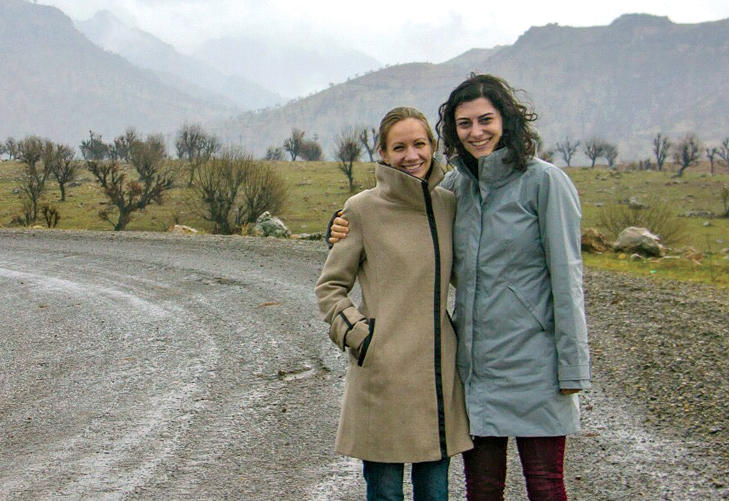The young entrepreneur stood in front of the panel of judges, fiddled nervously with a PowerPoint presentation, and prepared to pitch his idea: a virtual-reality game that would help refugees learn their new local language.
The scene, which took place in a gleaming, glass-walled new co-working space, could have been lifted from any venture competition in Silicon Valley. But there was a twist: the entrepreneur was himself a refugee. And he was pitching not in California, but in Erbil, Iraq, at a summer boot camp organized by Five One Labs, the first startup incubator for conflict-affected populations in the Middle East.
“There are over a million Iraqi IDPs (internally displaced persons) in Kurdistan, and 250,000 Syrian refugees. So there’s definitely need,” says cofounder and executive director Alice Bosley ’17SIPA. “Entrepreneurship training helps address some of the most pressing problems in the community, particularly employment and education.”
In addition to weekend boot camps in the spring and summer, the organization’s main program is a three-month-long incubator offered in the fall. Participants receive free office space, training in areas like financial planning and marketing, mentorship from experienced entrepreneurs in the Middle East and the US, and a chance to compete for $15,000 in seed money.
Some businesses in the incubator’s inaugural cohort, like the one making the virtual-reality language game, focus specifically on needs that people see in the refugee community. Others, like an online pharmacy service, are already common in Western nations but new to Iraq. And still others are, as Bosley puts it, universal needs.
“We have three young men who want to build a french-fry business,” she says. “And it makes sense. Iraq actually has an abundance of potatoes.”
Bosley came up with the idea for Five One Labs with classmate Patricia Letayf ’17SIPA. Both women have backgrounds in the Middle East — Bosley grew up mostly in Riyadh, Saudi Arabia, and Letayf was raised in America but has family in Syria and Lebanon. Before coming to Columbia, Letayf was a political analyst specializing in the region and Bosley worked in the innovation office of the American University of Iraq, advising students who were hoping to start their own businesses.
Bosley and Letayf were both interested in working with refugee populations and saw entrepreneurship as a way to create long-term solutions for building productive communities. There are a lot of refugee-support organizations dedicated to short-term care — basically, how to keep people alive,” Bosley says. “Very few are focused on what comes next.”
Bosley and Letayf started working intensively on the program in 2016 as a part of the SIPA Dean’s Public Policy Challenge, an annual competition for business ideas that use technology to help solve global problems. Bosley also worked part-time at the Columbia Entrepreneurship Design Studio, which she credits with helping her to develop the prototype for the program.
“The competition really pushed us to get our plan done and provided us with milestones that we needed to reach along the way,” Letayf says. “As we advanced through each round, we earned more funding.”
This past March, when many of their classmates were headed off on spring break, Bosley and Letayf traveled to Erbil to run a pilot version of the program. After graduating in May, they started working on it full-time.
Bosley and Letayf initially picked Erbil as the first incubator site largely for logistical reasons: they both had connections in the region, and the city is one of the few places with a significant refugee community where refugees have the legal right not only to work but also to own businesses.
They’ve also found it to be an inspiring, hopeful place. Like Mosul, which sits only fifty-five miles away, Erbil is an ancient city. But while Mosul has been reduced to rubble by a devastating nine-month-long battle between Iraqi forces and ISIS, Erbil is blossoming. The ancient Assyrian fortress there stands intact, presiding over a busy marketplace, new suburban subdivisions, and modern office buildings.
“The startup community is new in Iraq, but Erbil is lively, with an engaged community,” says Letayf. “We’re excited to be there, working with these remarkable people, and we can’t wait to show off some of their stories.”



